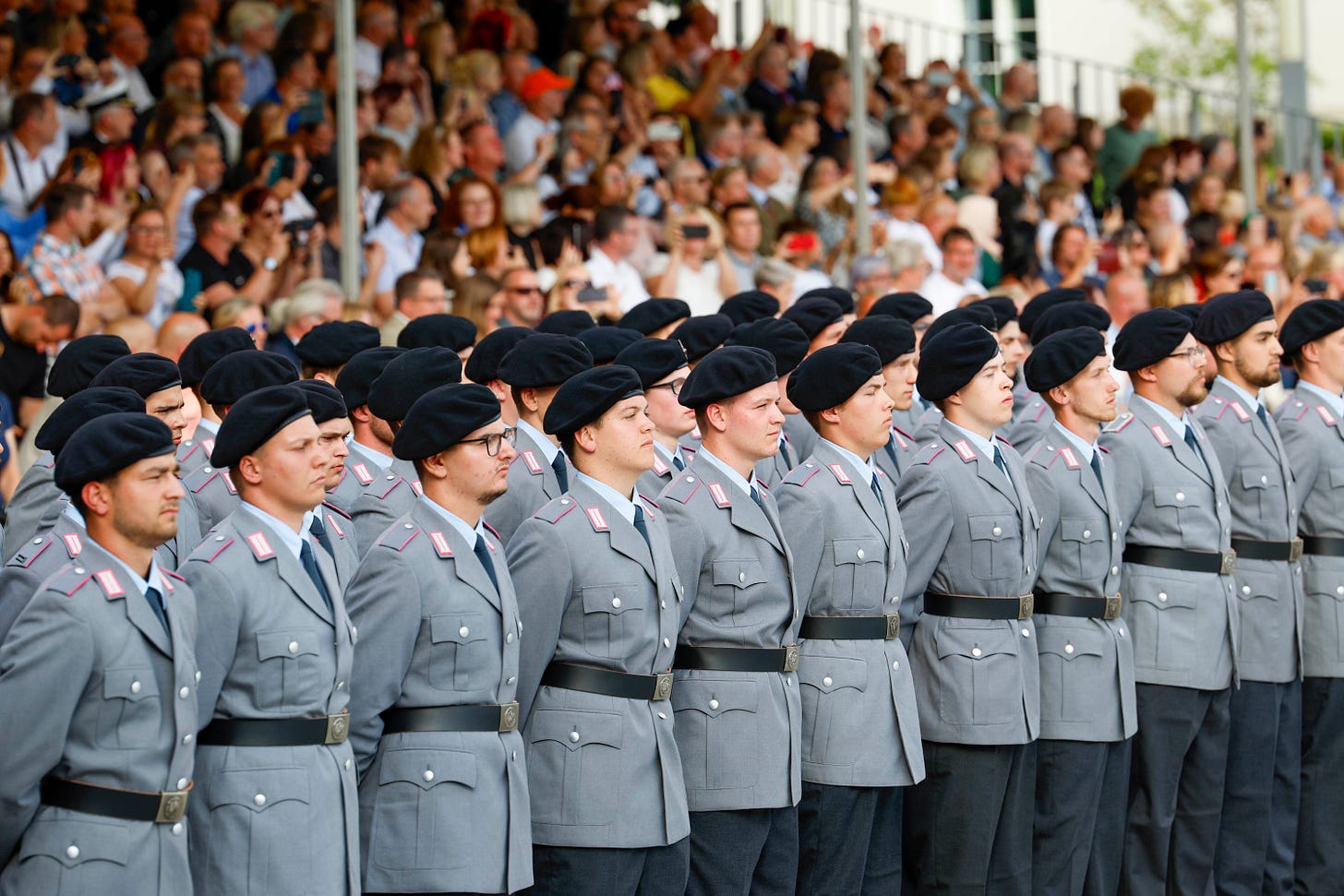Is Germany’s army ready for war? Inside the Bundeswehr’s weaknesses

Dear Reader,
Imagine for a moment that the head of your country’s armed forces was asked whether they would be capable of defending you in the event of war, and the best answer he could muster was: “if we had to fight today, we would do that.”
It is not exactly a response that fills you with confidence.
In fact, I’d wager that in most countries it’s the sort of admission that would lead to a major political scandal. The chief of staff would no doubt be forced out of his job by an “outraged” defence minister, who’d insist that the army is absolutely capable of fulfilling its most essential duty. Nothing to see here, all just a misunderstanding.
But Germany is not like most countries.
When the chief of staff, General Carsten Breuer, admitted last month that Germany is a country without a defence force worthy of the name, his remarks barely caused a ripple — a reaction that says less about the state of the Bundeswehr than about the country’s lingering discomfort with accepting Germany’s changing role in a world in which military deterrence is once again central to statecraft.
On the contrary, Breuer and his boss, defence minister Boris Pistorius (Social Democrats), have taken flak for suggesting (horror of horrors) that the German army should become kriegstüchtig (fit for war).
In a strategy paper the two men published in November, they used the word kriegstüchtig six times. In a country as leery about militarism as Germany, uttering the word K-r-i-e-g can still send people into the sort of violent convulsions known only to the actors of ham British comedies of the 1970s.
“We shouldn’t be talking about making Germany fit for war, we should instead say that we are prepared to defend ourselves,” responded a clearly pained Ralf Mützenich, the faction leader for Olaf Scholz’s Social Democrats in the Bundestag.
“We shouldn’t just be concerned with war, but also with how wars can be ended,” he fretted.
A life-long pacifist, Mützenich has been a constant brake on efforts to provide military aid to Ukraine. He still can’t seem to get his head around the fact that Vladimir Putin hasn’t been inspired to put flowers in his hair by Germany’s decision to run its own army into the ground.
Less expectedly, Markus Söder, the powerful conservative leader of Bavaria, said that “we think it's really good that the army is finally being strengthened,… but we do not share the goal of being ready and able to go to war.”
Apparently, the army should be strengthened, but not in any way that might make it capable of fighting…
These kinds of nonsensical statements mirror a public schizophrenia when it comes to questions of defence.
Polling shows that around two thirds of Germans support Pistorius’ plan to make the army “war fit”. But, when asked if they would take up arms in the event of invasion, a clear majority said they wouldn’t do so.
This is the minefield that Pistorius and Breuer have to navigate as they attempt to prepare the country for a more dangerous future.
And the two men have a major task on their hands. The Bundeswehr, Germany’s armed forces, are in a dismal state. But convincing German society that it also needs to adapt to the new reality may well be the more challenging task.
How unprepared is the Bundeswehr, really?
Keep reading with a 7-day free trial
Subscribe to The German Review to keep reading this post and get 7 days of free access to the full post archives.


